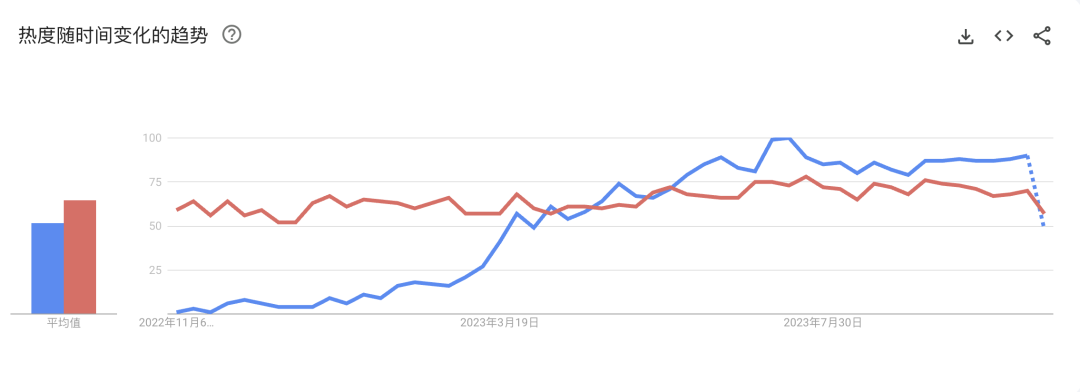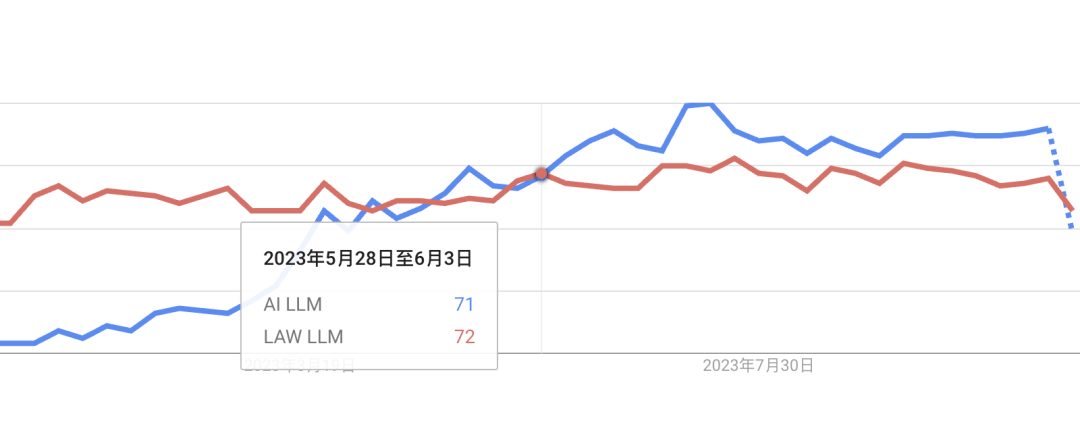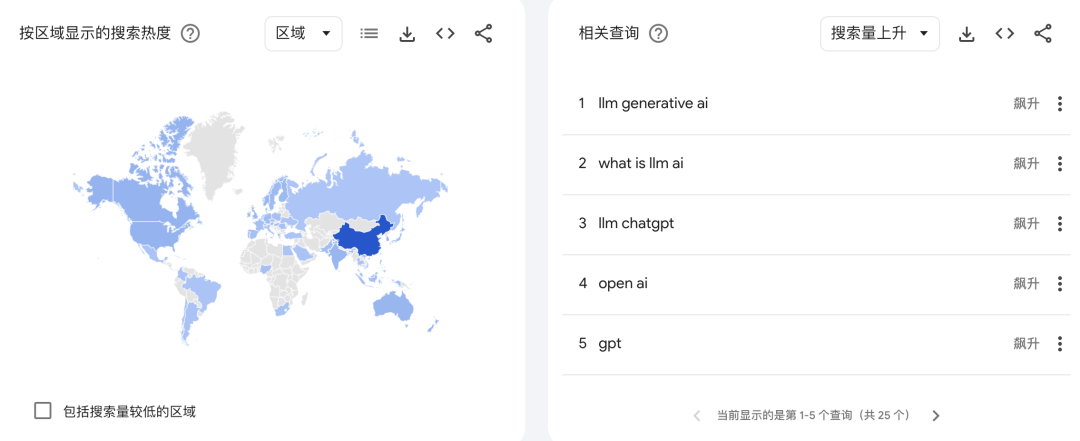Source: Geek Park
Author: Jingyu
Before long, it will be the law master's complaint that their title has been translated as "large language model."

Image Source: Generated by Wujie AI
For those who are a bit lazy and like to use browsers or translation plugins to read English news, it's hard to avoid being blinded by the frequent appearance of "law master" in the current AI big model trend.
It's not that the large language model (LLM) is strongly associated with law, but rather a misinterpretation of an abbreviation.
Why has the new wave of AI driven by large models surged so much, while browsers and translation software still insist on translating LLM as "Master of Laws"? When will the "master's cap" of large models be removed?
01 On the "LLM Concentration," Large Models Are Still the Younger Sibling
First, it needs to be clarified that the abbreviation "LLM" in English can refer to the current hot "Large Language Model," and at the same time, in the field of education, it usually refers to "Legum Magister" or "Master of Laws," that is, a law master.
For machine translation functions like those equipped in Google browsers, the most common challenge is ambiguity and understanding of context.
Machine translation usually relies on a large amount of text data to learn how to translate words and phrases. If most instances of "LLM" appear in legal contexts, the translation system may learn that "LLM" usually refers to "Master of Laws." Unless the system can recognize specific technical contexts, it may not choose "large language model" as the translation.
Even though the generative AI driven by large language models is so hot right now, terms like LLM are not widely known among non-technical people, which means translation systems may not have enough examples in their training data to learn this specific contextual usage.
This means that the importance of LLM as a "large language model" in machine translation is not as high as its importance as a "Master of Laws."
There's evidence to support this.

Comparison of the popularity of AI LLM and Law LLM keywords over the past year | Google Trends
Using "AI LLM" (artificial intelligence, large language model) and "Law LLM" (law, Master of Laws) as keywords, a comparison chart of the two keywords in Google Trends over the past year shows that the term AI LLM began to heat up gradually after the launch of ChatGPT in November last year, while the popularity of Law LLM, representing the true Master of Laws, has remained around "50 points."
By mid-March 2023, AI LLM experienced its first peak in popularity. What happened then? The answer is that on March 14, OpenAI officially launched ChatGPT-4, completely igniting the AI market.

By the end of May, AI completely surpassed Law in popularity | Google Trends
Subsequently, in just 2 months, by the end of May and early June, the curve representing AI LLM continued to rise, completely surpassing Law LLM in search popularity, and the trend has continued to the present.

Keywords related to AI are all in a soaring state | Google Trends
From the global heat map, it can be seen that Chinese netizens are quite enthusiastic about AI LLM—keywords related to generative AI, OpenAI, and ChatGPT have been in a "soaring" state.
Although AI has recently overshadowed "law high-achievers" in terms of popularity, due to the absolute numerical disadvantage of "large language models," it is still the "younger sibling," so LLM is still default translated as "Master of Laws" in machine translation.
02 Can It Still Be Changed? How?
So, is there no way to remove the "Master of Laws" cap from the LLM large language model? Not necessarily, but it will indeed take some time, and some key factors may accelerate the process of clarifying misunderstandings:
Widespread use of technical terms
If the term "Large Language Model" is significantly increasing in frequency of use in web pages, academic papers, news reports, and social media, search engines are more likely to learn this meaning.
Improvement of search engine algorithms
As search engine algorithms continue to be optimized, their ability to understand context and eliminate ambiguity is also improving. This may accelerate the correct translation of the term "LLM."
User feedback and behavior
User behavior and feedback when using search engines also affect algorithms. If users frequently search for content related to large language models and select related links in search results, search engines will gradually learn and adjust their algorithms.
Development in the technical field
As large language models are increasingly applied in the technical field, the content and discussions related to them will also increase, which will help improve search engines' ability to recognize this term.

LLM directly translated as Master of Laws in sponsored ads on Techmeme | Techmeme
Given the current popularity of AI, the future where LLM is uniformly translated as "large language model" may not be far off. The time and progress are likely in the hands of all netizens.
However, this may also be a small problem for the real legal and educational fields. If LLM is widely perceived as "AI large language model" in the future, those looking for local "Master of Laws" exams may have to search a bit more online. And law schools will have to put in more effort in search engine optimization.
In this era of information explosion, the meanings of terms are constantly evolving. From "Master of Laws" to "large language model," the dual identity of LLM allows us to witness the diversity of language and the progress of technology. Let's wait and see how this small abbreviation will continue to evolve in our language and technology.
免责声明:本文章仅代表作者个人观点,不代表本平台的立场和观点。本文章仅供信息分享,不构成对任何人的任何投资建议。用户与作者之间的任何争议,与本平台无关。如网页中刊载的文章或图片涉及侵权,请提供相关的权利证明和身份证明发送邮件到support@aicoin.com,本平台相关工作人员将会进行核查。




